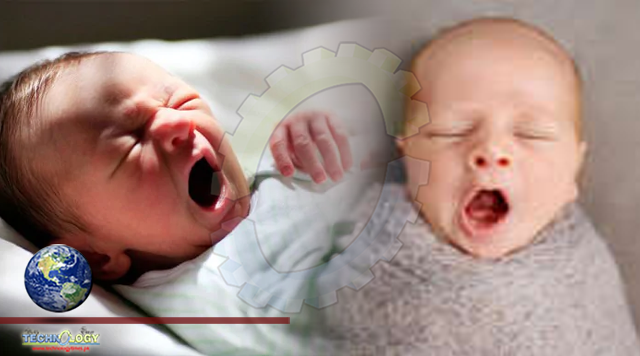This ability to breathe flawlessly is largely controlled by the most ancient part of the brain, called the brainstem, and new research has revealed how a baby’s first breath kickstarts this neural mechanism, allowing us to respire for the rest of our lives.

From our first breath to our last, the continual and automatic exchange of gases between ourselves and our environment is something that we never even have to think about. This ability to breathe flawlessly is largely controlled by the most ancient part of the brain, called the brainstem, and new research has revealed how a baby’s first breath kickstarts this neural mechanism, allowing us to respire for the rest of our lives.
Because fetuses don’t breathe inside the womb, it’s pretty essential that babies get to grips with this pulmonary activity as soon as they are born. While this typically isn’t a problem, some newborns can experience temporary cessations of breathing called apnoeas, which can result in brain damage or even sudden infant death syndrome (SIDS).
Publishing their findings in the journal Nature, the study authors noted a sudden increase in the expression of a particular gene within these RTN neurons immediately after birth. In contrast, mice pups that were examined while still inside their mother’s amniotic sac displayed no such activation of this gene, suggesting that this change occurs upon first contact with the postnatal environment.
Importantly, the gene in question codes for the production of a neurotransmitter called PACAP, allowing the neurons of the RTN to start sending out certain signals from the moment a baby is born.
When the researchers genetically engineered mice to lack the gene that codes for PACAP, the rodents’ breathing became depressed by roughly 25 percent, while they also experienced a four-fold increase in apnoeas. Interestingly, these respiratory complications were exacerbated when the mice pups were placed in very cold or very warm environments, suggesting that the problems arising from PACAP deficiency are partially dependent on thermal stress.
This is significant as temperature has been found to play a role in SIDS, with infants more likely to suffer fatal breathing problems if they are too hot.
When the researchers restored PACAP production in the RTN neurons of their study mice by injecting them with a virus containing the necessary genetic material, breathing returned to normal levels. Taken together, these results suggest that the activation of PACAP signaling at birth jump-starts the brain’s ability to regulate respiration for the rest of a person’s life.
Commenting on this discovery, study author Douglas Bayliss explained in a statement that “birth is traumatic for the newborn, as the baby has to independently take control over various important body functions, including breathing.”
“We think that activation of this support system at birth provides an extra safety factor for this critical period.”
Originally published IFL science